Het arrangement Heroes h45 is gemaakt met Wikiwijs van Kennisnet. Wikiwijs is hét onderwijsplatform waar je leermiddelen zoekt, maakt en deelt.
- Auteur
- Laatst gewijzigd
- 28-11-2025 11:48:13
- Licentie
-
Dit lesmateriaal is gepubliceerd onder de Creative Commons Naamsvermelding-GelijkDelen 4.0 Internationale licentie. Dit houdt in dat je onder de voorwaarde van naamsvermelding en publicatie onder dezelfde licentie vrij bent om:
- het werk te delen - te kopiëren, te verspreiden en door te geven via elk medium of bestandsformaat
- het werk te bewerken - te remixen, te veranderen en afgeleide werken te maken
- voor alle doeleinden, inclusief commerciële doeleinden.
Meer informatie over de CC Naamsvermelding-GelijkDelen 4.0 Internationale licentie.
Het thema 'Heroes' (h45) is ontwikkeld door auteurs en medewerkers van StudioVO.
Fair Use
In de Stercollecties van StudioVO wordt gebruik gemaakt van beeld- en filmmateriaal dat beschikbaar is op internet. Bij het gebruik zijn we uitgegaan van fair use.
Meer informatie: Fair use
Mocht u vragen/opmerkingen hebben, neem dan contact op via de
helpdesk VO-content.
Aanvullende informatie over dit lesmateriaal
Van dit lesmateriaal is de volgende aanvullende informatie beschikbaar:
- Toelichting
- Dit thema valt onder de arrangeerbare leerlijn van de Stercollectie voor Engels voor havo, leerjaar 4 en 5. Dit is thema: 'Heroes'. Dit thema omvat de volgende volgende onderwerpen: - Superheroes - Young local heroes - Malala - Sit with us De grammaticaopdrachten gaan over mixed conditionals.
- Leerniveau
- HAVO 4; HAVO 5;
- Leerinhoud en doelen
- Engels;
- Eindgebruiker
- leerling/student
- Moeilijkheidsgraad
- gemiddeld
- Studiebelasting
- 16 uur 0 minuten
- Trefwoorden
- arrangeerbaar, engels, h45, heroes, malala, sit with us, stercollectie, superheroes, young local heroes
Gebruikte Wikiwijs Arrangementen
VO-content Engels. (2021).
Young local heroes h45

 Heroes
Heroes


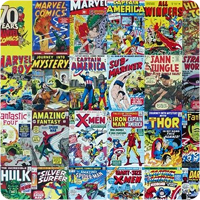 The subject of this lesson is 'Superheroes'.
The subject of this lesson is 'Superheroes'.


 Song: Superheroes
Song: Superheroes By Robin Rosenberg
By Robin Rosenberg
 By Robin Rosenberg
By Robin Rosenberg Here are some words from the text 'The Psychology Behind Superhero Origin Stories'.
Here are some words from the text 'The Psychology Behind Superhero Origin Stories'. Writing Task
Writing Task
 Fill in the schedule and answer the questions below.
Fill in the schedule and answer the questions below. The subject of this lesson is 'Young local heroes'.
The subject of this lesson is 'Young local heroes'. Speaking
Speaking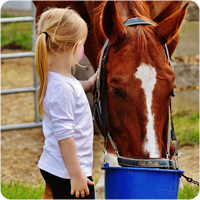 Listening
Listening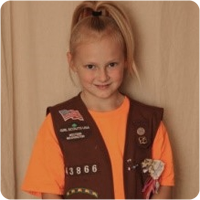 A 7-year-old Lynnwood Girl Scout was recognized in Edmonds Saturday afternoon for her efforts to save her 18-month-old brother from choking earlier this year. Annberly S., a member of Girl Scout Brownie Troop 43866, received a Medal of Honor from Girl Scouts USA during a ceremony Saturday at Edmonds Methodist Church. Because she is a minor, her parents have requested that her last name not be published.
A 7-year-old Lynnwood Girl Scout was recognized in Edmonds Saturday afternoon for her efforts to save her 18-month-old brother from choking earlier this year. Annberly S., a member of Girl Scout Brownie Troop 43866, received a Medal of Honor from Girl Scouts USA during a ceremony Saturday at Edmonds Methodist Church. Because she is a minor, her parents have requested that her last name not be published.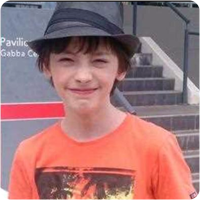
 Grammar
Grammar
 Writing
Writing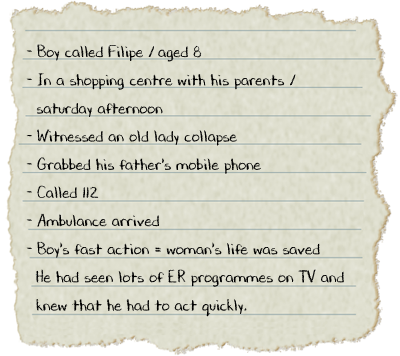
 Fill in the schedule and answer the questions below.
Fill in the schedule and answer the questions below. The subject of this lesson is 'Malala'.
The subject of this lesson is 'Malala'. Reading, speaking and thinking
Reading, speaking and thinking Profile: Malala Yousafzai
Profile: Malala Yousafzai Words
Words Video watching
Video watching Task: Summary Writing
Task: Summary Writing The subject of this lesson is 'Sit with us'.
The subject of this lesson is 'Sit with us'. ‘Sit With Us’ also aims to help reduce bullying.
‘Sit With Us’ also aims to help reduce bullying.
 Task: Writing
Task: Writing


